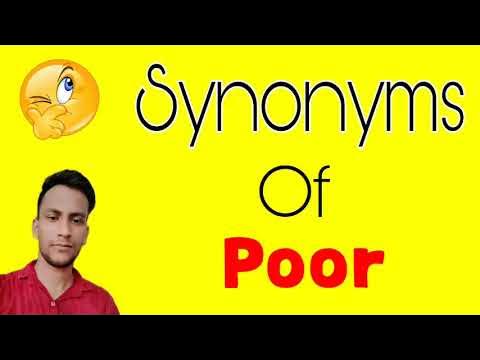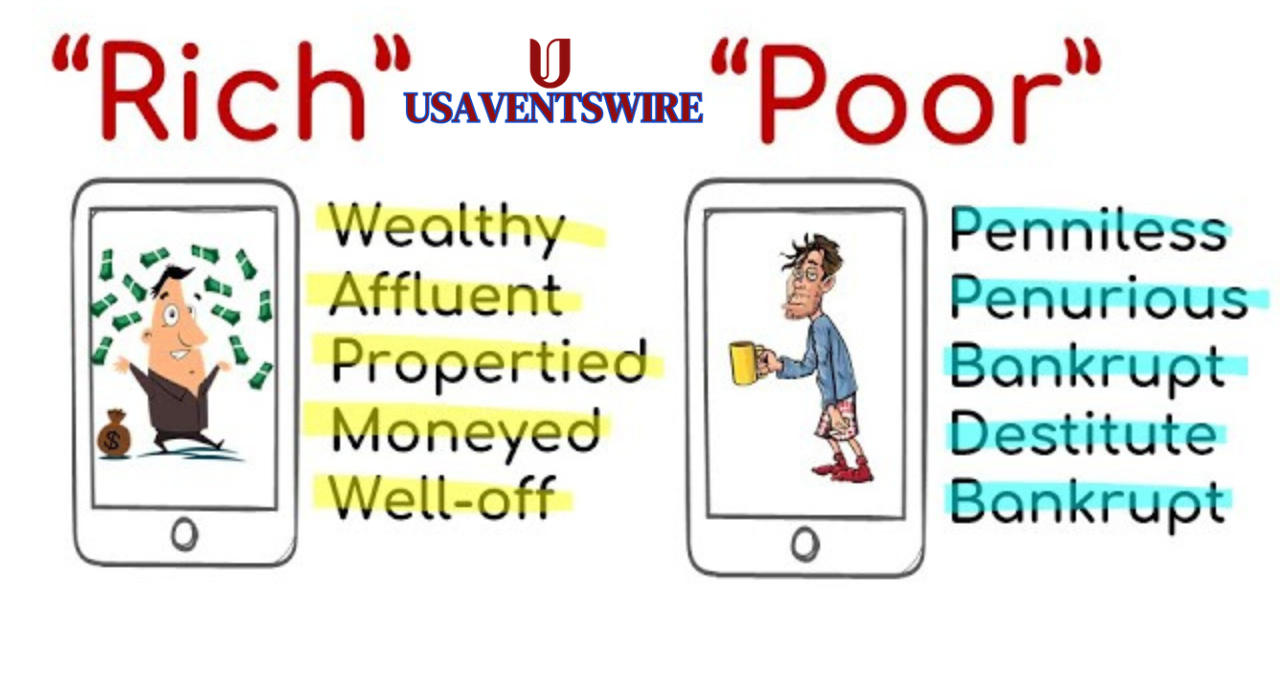Language is a living tool, and words carry more weight than we often realize. Take the word “poor,” for example. It’s simple, direct, and easy to use, but it’s also a bit overworked. That’s where exploring a poor synonym becomes useful. Writers, speakers, and even casual communicators can benefit from learning different ways to say the same thing, because it gives more depth and clarity to the message.
When you lean on one word too often, your writing or speech can feel flat. Using a poor synonym not only adds variety but also allows you to convey subtle differences in meaning. After all, being “poor” can mean lacking money, lacking quality, or even being low in spirit. So, depending on your context, swapping out the word for a better synonym can make your communication shine.
Poor Synonym in Everyday Language
We often underestimate how much our word choices shape our daily conversations. For example, when someone describes a situation as “poor,” it might sound blunt or even a little harsh. But reaching for a poor synonym can soften the message or make it more accurate. Saying something is “unfortunate” or “underprivileged” paints a slightly different picture than just saying it is “poor.”
Another way to look at it is through storytelling. Imagine writing a piece where every character is described as “poor.” Eventually, it loses impact. But if you use synonyms like “destitute,” “needy,” or “impoverished,” the narrative becomes richer. Each synonym carries its own nuance, which helps readers engage with the story in a deeper way.
Poor Synonym in Professional Writing
Professional writing demands precision, and this is where a poor synonym can really make a difference. For instance, a business report that says “poor sales” might sound negative and abrupt. Instead, using terms like “weak sales” or “sluggish performance” sounds more professional and less discouraging. Choosing the right word shows awareness of tone, which can affect how the message is received.
Academic and research writing also benefit from using poor synonyms. Instead of repeating “poor results” throughout a paper, words like “inadequate,” “limited,” or “substandard” help maintain variety. This not only improves readability but also demonstrates a stronger command of the language, something every expert aims to achieve.
Why Synonyms Matter for Clarity
Language is not just about vocabulary—it’s about communication. Using a poor synonym can clarify meaning in a way the word “poor” sometimes cannot. For example, saying a “poor performance” in sports could mean lacking effort, lacking skill, or even being unlucky. Swapping in “weak,” “ineffective,” or “unsuccessful” makes the statement clearer and less open to interpretation.
On the flip side, synonyms also make writing less repetitive. Repetition can distract readers and dilute the impact of your message. By keeping your word choices fresh, you show respect for the reader’s attention and create a smoother flow of ideas.
Emotional Impact of Word Choice
Words carry emotional weight, and the choice between “poor” and a poor synonym can alter the mood of a sentence. Calling someone “poor” might sound dismissive, but describing them as “underprivileged” shows empathy. Similarly, referring to an object as “cheap” could come across as judgmental, whereas “affordable” conveys the same idea with a more positive spin.
This emotional layer is crucial in persuasive writing and speech. Whether you’re trying to inspire, sell, or inform, the right synonym ensures your message connects with your audience. It’s not just about finding another word—it’s about finding the right word for the moment.
Poor Synonym in Literature and Storytelling
Writers have always relied on synonyms to create vivid stories. A character described as “poor” might feel one-dimensional, but call them “destitute,” and the image becomes more dramatic. Use “impoverished,” and it feels formal, while “needy” introduces a sense of vulnerability. Each poor synonym allows writers to fine-tune the emotional landscape of their story.
Even world-building benefits from this approach. When describing settings, calling a village “poor” tells us very little. But describing it as “meager,” “broken-down,” or “struggling” helps the reader visualize the environment more clearly. This is the magic of language at work.
Practical Tips for Using Poor Synonyms

Expanding your vocabulary is easier than it seems. One practical method is to keep a personal list of synonyms you like. For example, note down alternatives such as “meager,” “unfortunate,” or “limited” and practice weaving them into sentences. Over time, it becomes second nature to swap in a poor synonym instead of defaulting to the same old word.
Another tip is to pay attention to context. Not every synonym works everywhere. Calling a recipe “poor” may be accurate, but calling it “destitute” doesn’t make sense. Matching the synonym to the situation ensures that your writing remains clear and natural.
Balancing Synonyms and Simplicity
While exploring synonyms is valuable, simplicity should not be sacrificed. Overloading your writing with complicated alternatives can confuse readers. The key is balance: use a poor synonym where it adds value, but don’t force it. Sometimes the word “poor” is the best option, and that’s perfectly fine.
Good communication is about making choices that serve your message. Synonyms are tools, not rules. Think of them as spices—you don’t need to use them in every sentence, but the right one at the right time can completely change the flavor of your writing.
Commonly Overlooked Poor Synonyms
Some poor synonyms are so natural we don’t even notice them. Words like “humble,” “modest,” or “ordinary” often carry the same meaning, depending on the context. These subtle variations can keep your writing fresh and engaging without straying too far from everyday language.
Others, like “miserable,” “inadequate,” or “subpar,” lean toward specific contexts. They’re often overlooked because people tend to reach for the simplest option. Expanding awareness of these less common synonyms can be a game-changer for both casual and professional writing.
Conclusion
Words shape how we think and communicate, and the word “poor” is no exception. By exploring a poor synonym in different contexts—whether everyday conversations, professional writing, or creative storytelling—you add depth, clarity, and variety to your language. Synonyms allow you to match the right word to the right moment, making your message more impactful and engaging.
